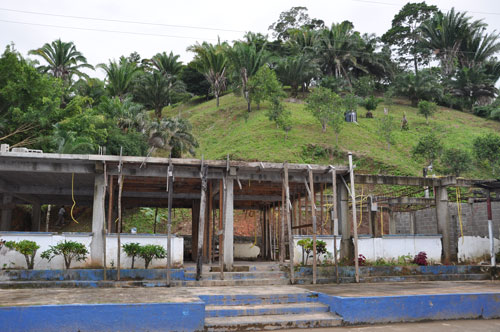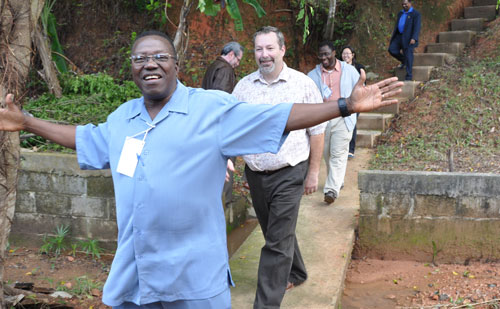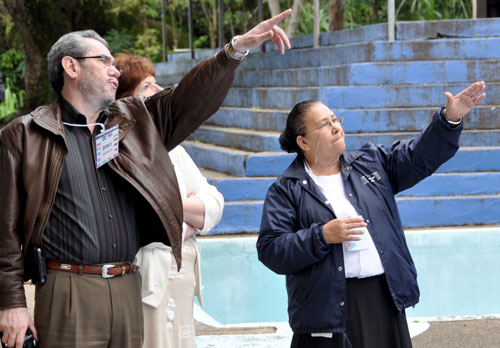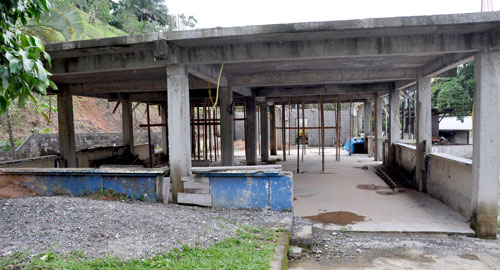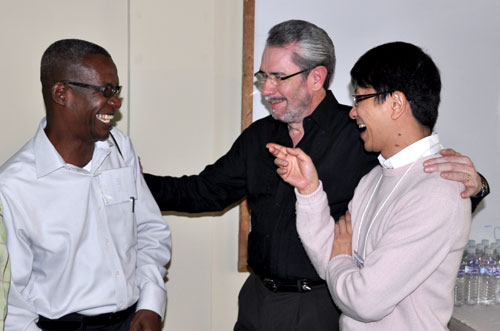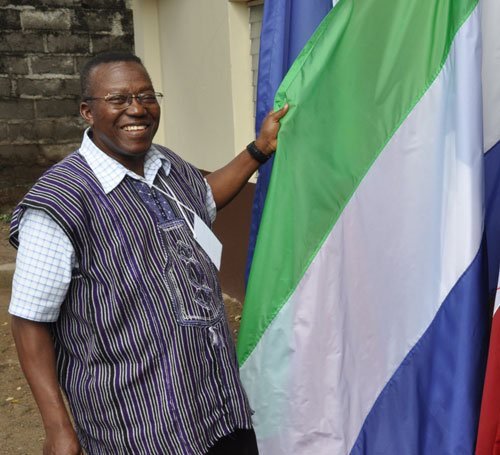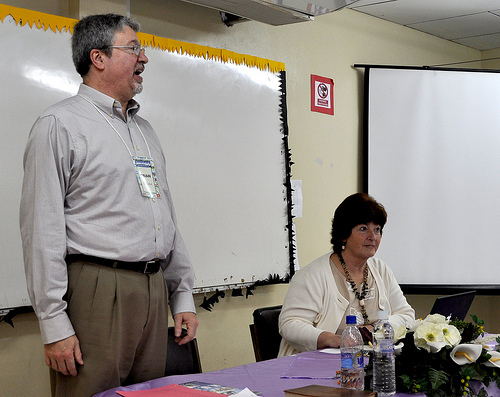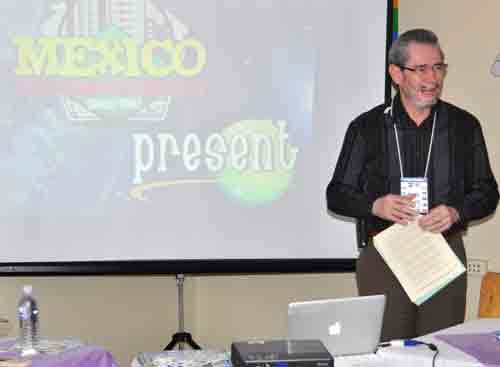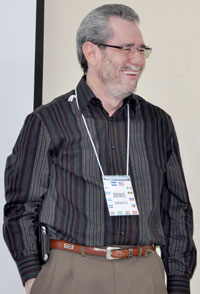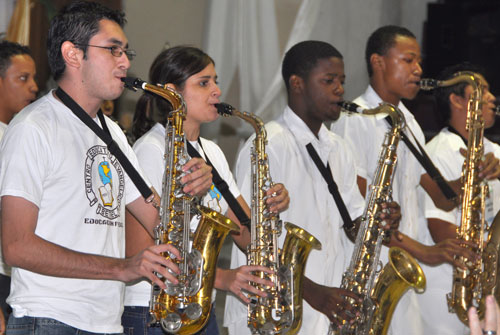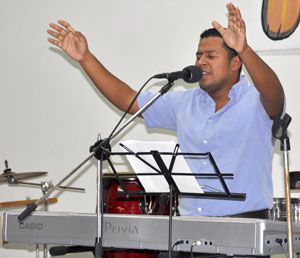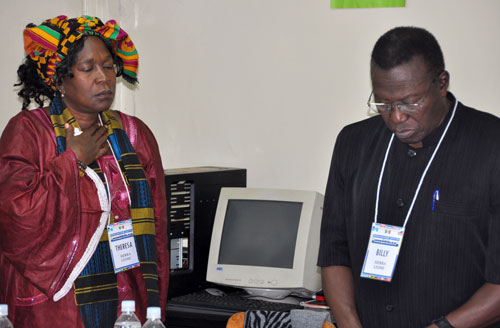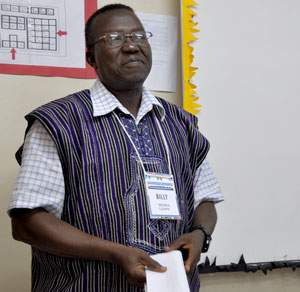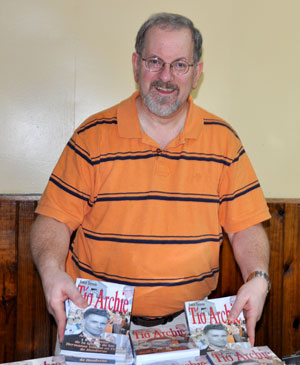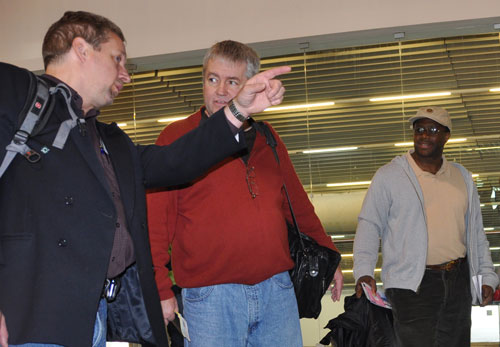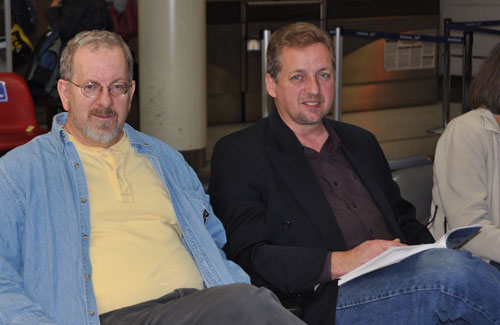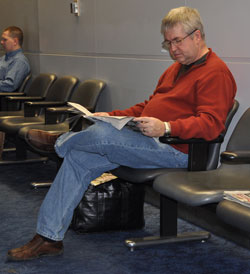January 15, 2010
|
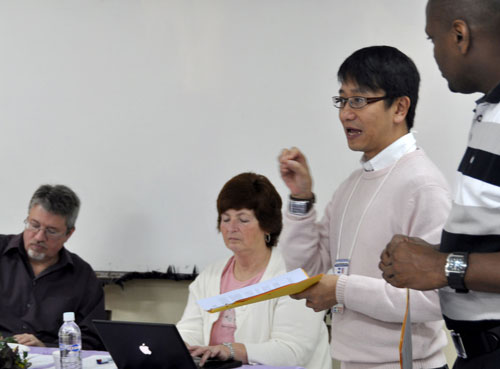
Ajiax Wo gives his report as superintendent of Hong Kong Conference. L-r: Brian Magnus (chair), Donna Hollopeter (secretary), Ajiax, and Orville Brown (translator).
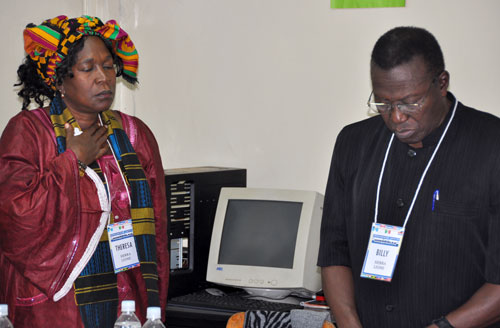
Theresa Musa and Billy Simbo (Sierra Leone) during the prayer time for Haiti. Billy also opened with the day's devotional.
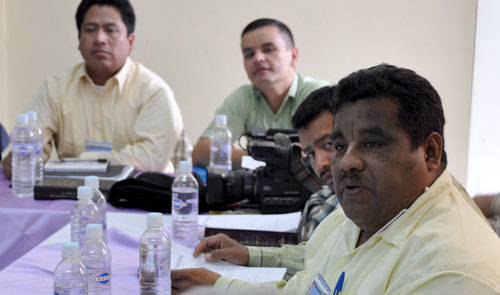
Juan Pavon Pavon (Nicaragua) speaking.
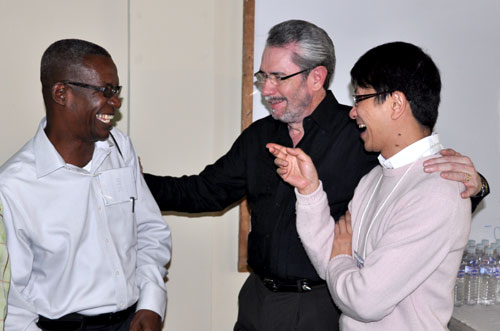
Laughter: the universal language. L-r: Isaac Nugent (Jamaica), Denis Casco (Mexico), Ajiax Wo (Hong Kong).
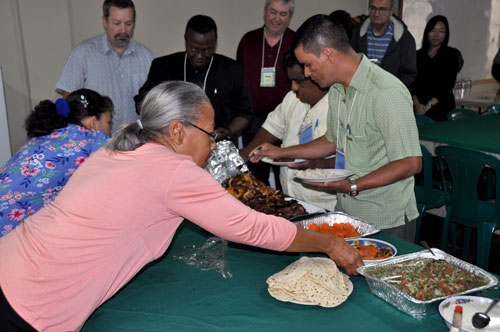
The Honduran women fed everyone well, three meals a day.
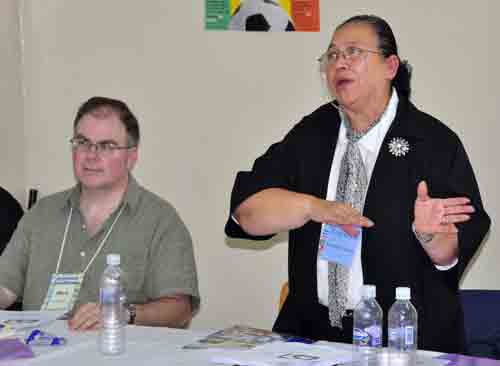
Juanita Chavez, Honduran superintendent, talks about her country's long-range plan.
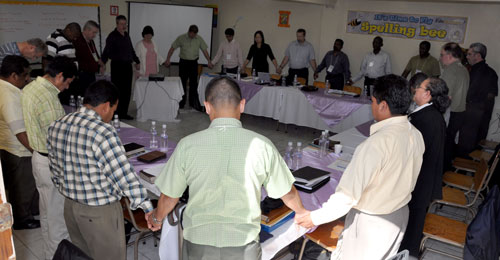
The closing prayer time.
Wednesday’s General Conference meeting opened with a devotional from Billy Simbo, bishop of Sierra Leone conference. He used the story where Jesus brought a huge catch of fish to an astonished Peter and his fellow fishermen.
The group then spent some time praying for Haiti and for Superintendent Oliam Richard, who at that point was traveling to the La Ceiba airport with Denis Casco (bishop of Mexico), hoping to get a flight to Haiti. (He eventually opted to stay in La Ceiba. The January 13 posts tell about that.)
Ajiax Wo, superintendent of Hong Kong Conference, was welcomed to his first full day of General Conference. He got hung up in New York City, needing a Honduran vissa. He reported on the ministry in Hong Kong. Karis Vong, the other Hong Kong delegate, had reported in his place, but restricted her report to Macau, where she ministers.
The delegates discussed, and unanimously passed, two changes to the international governing documents:
- Changing the frequency of General Conference from 4-3 years.
- Reducing representation to just two persons for each national conference–the highest governing leader, plus one other person (doesn’t need to be a minister).
Next: they approved changes to the governing documents of the various national conference. One role of the General Conference is to monitor changes in the member documents to make sure they remain in conformity with United Brethren doctrine and core values.
Each national conference mentioned any significant changes to its governing documents. There were various structural changes in some conferences, but nothing that caused any concern. All changes were approved. As expected.
A few miscellaneous matters were cared for. Then Brian Magnus called for someone to adjourn this 50th meeting of the General Conference.
They adjourned.
But before you drive away….
The executive committee met for a while. They re-elected Brian Magnus as chairman of the International Executive Committee, a position he has held since 2001. The executive committee will decide where the next General Conference is held, in 2013.
The delegates reassembled for a presentation on the long-range plan of Honduras Conference by Abdiel Lopez, a Guatemalan whose organization is assisting the conference.
And THEN everyone was done for the afternoon. Most of the delegates squeezed time in at the local mall–just like any modern mall in the United States–before supper and the evening service.
